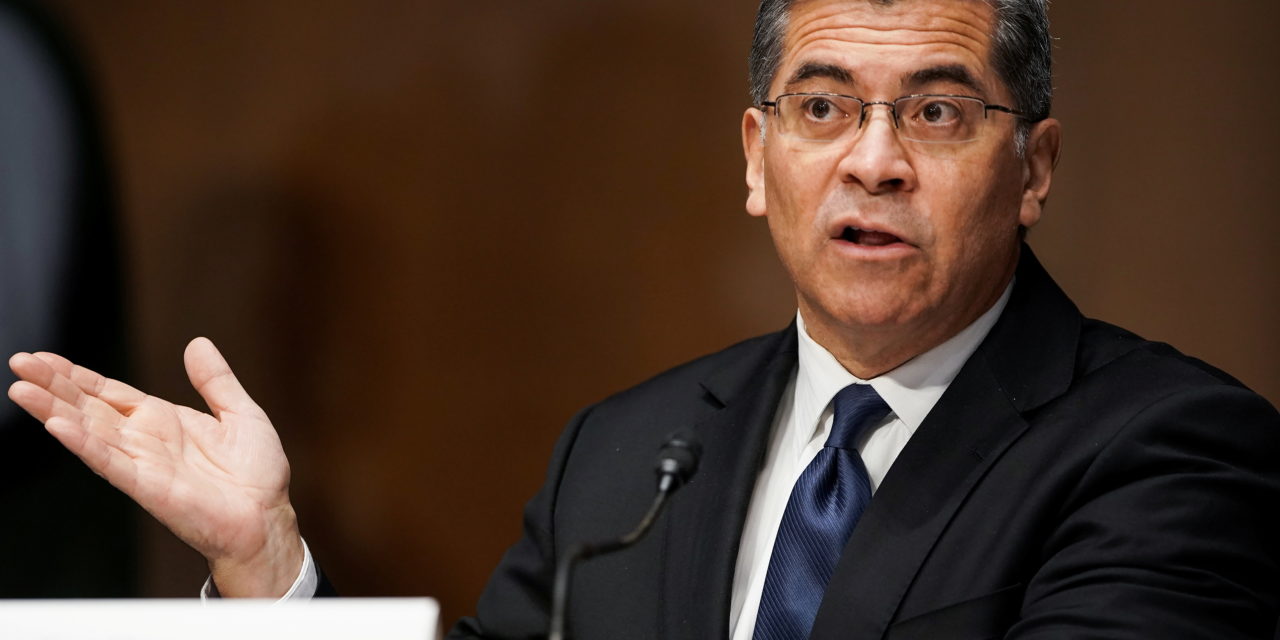While testifying on Capitol Hill, Health and Human Services (HHS) Secretary Xavier Becerra refused to acknowledge the federal ban on partial-birth abortion, which has been in place since 2003.
The remarks were made during a hearing with the House Energy and Commerce subcommittee on health, during a discussion about the budget of HHS.
Rep. Gus Bilirakis of Florida asked, “Do you agree that partial-birth abortion is illegal?”
Becerra responded, stating, “There is no medical term like ‘partial-birth abortion,’ and so I would probably have to ask you what you mean by that to describe what is allowed by the law. But Roe v. Wade is very clear, it’s settled precedent, and a woman has a right to make decisions about her reproductive health, and we will make sure that we enforce the law and protect those rights.”
But Roe isn’t settled, as the most recent Pew Research Center study showed that the country still remains relatively divided on the issue of abortion, with 39% of Americans wanting to make the practice illegal in most or all cases and 59% wanting it legal in all or most cases.
Even the late-Justice Ruth Bader Ginsburg, who was a staunch pro-abortion activist, thought that Roe was bad law and open to challenge.
When it comes to the legality of partial-birth abortions, the law is crystal clear.
The Partial-Birth Abortion Ban, passed in 2003, states, “A moral, medical, and ethical consensus exists that the practice of performing a partial-birth abortion—an abortion in which a physician deliberately and intentionally vaginally delivers a living, unborn child’s body until either the entire baby’s head is outside the body of the mother, or any part of the baby’s trunk past the navel is outside the body of the mother and only the head remains inside the womb, for the purpose of performing an overt act (usually the puncturing of the back of the child’s skull and removing the baby’s brains) that the person knows will kill the partially delivered infant, performs this act, and then completes delivery of the dead infant—is a gruesome and inhumane procedure that is never medically necessary and should be prohibited.”
But the Secretary of HHS doesn’t seem to acknowledge this law or its wording. Becerra later stated, “There is no law that deals specifically with the term ‘partial-birth abortion.’”
Pennsylvanian Rep. John Joyce pressed Becerra again on the topic, asking, “It didn’t seem clear that you understood what my colleague Mr. Bilirakis meant by the term ‘partial-birth abortion.’”
“Section 1531 of Title 18 U.S. Code is literally titled, ‘Partial Birth Abortions Prohibited.’ That statute very clearly defines this inhumane procedure,” Joyce said. “So now with that clarification, could you please recognize that that does exist in statute, and I would ask you, do you agree that this law is correct?”
Becerra again deflected, arguing, “The term partial-birth abortion may been recognized in politics and by politicians,” but it is “not a medically recognized term.” He instead stated that the proper term is “dilation and extraction” or D&E abortion.
“I know that this is a very sensitive issue for a lot of folks, but I think most medical practitioners will tell you they understand what a dilation and extraction procedure is. I doubt that most of them could give you a medical definition of what partial-birth abortion is,” Becerra said.
“As a physician myself, Mr. Secretary, I think I clearly understand what a partial-birth abortion is,” Joyce responded.
This argument is essentially over semantics. Pro-abortion activists interested in downplaying the horrors of abortion want to reframe it in a way that makes it more palatable, but it isn’t. Partial-birth abortion is an accurate descriptor of the practice, where a preborn baby is partially born before brutally killed in the birth canal. It’s illegal for a reason.
Nothing can make that practice less horrific than it is, and it’s disturbing to see a federal government official in charge of health services trying to dismiss and argue that the practice doesn’t exist.






